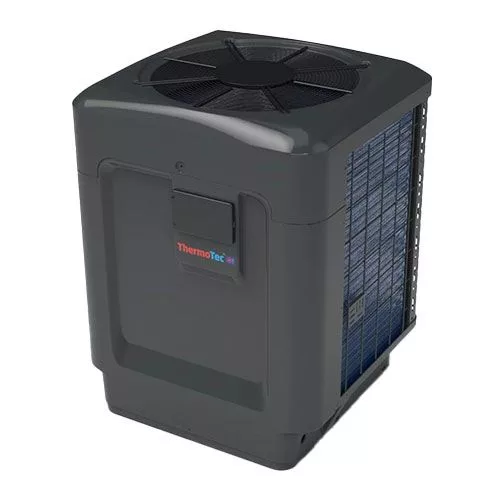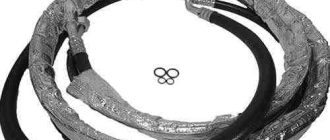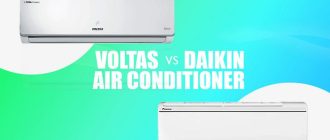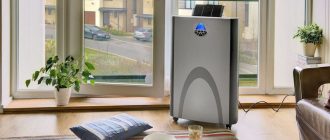
Heat Pump Inverter: Advantages and How to Choose the Right One
Are you looking to heat your home efficiently and effectively? Look no further than the heat pump inverter. This innovative technology allows you to choose the right temperature for your space while providing numerous advantages for your home or office.
One of the main advantages of a heat pump inverter is its energy efficiency. Unlike traditional heating systems, which constantly turn on and off, the inverter technology allows the system to adapt and adjust the heating capacity based on the current temperature needs. This means that the heat pump inverter consumes less energy and provides consistent warmth throughout the day, resulting in lower energy bills.
But how do you select the perfect heat pump inverter for your needs? Consider the size of your space and the desired heating capacity. A heat pump inverter with too little power might struggle to heat your home adequately, while one with too much power may be a waste of energy and money. Additionally, look for a model with a high COP (Coefficient of Performance) rating, as this indicates better energy efficiency.
When it comes to heat pump inverters, one size does not fit all. That’s why it’s crucial to choose the right one for your specific needs. Whether you need to heat a small room or an entire house, there’s a heat pump inverter out there that can meet your requirements.
Experience the advantages of a heat pump inverter for yourself and enjoy energy-efficient heating all year round. Don’t settle for traditional heating systems. Upgrade to a heat pump inverter and start saving on your energy bills today.
The Benefits of Heat Pump Inverter
When it comes to choosing the right heat pump for your home or business, the heat pump inverter is an excellent option to consider. With its advanced technology and energy-saving features, it offers a range of advantages that make it a popular choice among homeowners and businesses alike.
- Energy Efficiency: One of the key advantages of a heat pump inverter is its high energy efficiency. It uses advanced technology to regulate its speed and adjust the heating or cooling output according to the temperature requirements. This results in lower energy consumption and reduced utility bills.
- Comfort: The heat pump inverter offers precise and consistent temperature control, ensuring optimal comfort in your space. It can maintain a stable temperature by automatically adjusting its speed and output, eliminating temperature fluctuations and providing a comfortable living or working environment.
- Quiet Operation: Unlike traditional heat pumps, the inverter model operates at a much lower noise level. The advanced compressor technology and variable speed operation make it a quiet and peaceful addition to your home or office.
- Longer Lifespan: Heat pump inverters are designed to have a longer lifespan compared to standard heat pumps. The ability to run at lower speeds and adjust the output based on demand reduces wear and tear, resulting in a longer operating life.
- Environmental Friendliness: By reducing energy consumption and utilizing clean energy sources, heat pump inverters are an environmentally friendly choice. They help lower carbon emissions and contribute to a greener future.
In conclusion, the heat pump inverter offers numerous benefits compared to traditional heat pumps. Its energy efficiency, comfort, quiet operation, longer lifespan, and environmental friendliness make it the right choice for those seeking a reliable and sustainable heating and cooling solution.
Energy Efficiency
Energy efficiency is one of the key advantages of using a heat pump inverter. The inverter technology allows the pump to adjust its speed according to the current heating or cooling requirements of the space. This means that the heat pump operates at the right speed to provide the desired temperature, without wasting any energy.
Compared to traditional heat pumps, inverter heat pumps are much more energy efficient. They consume less power when operating at lower speeds, which results in significant savings on electricity bills. The ability to adjust the speed also means that the heat pump can ramp up or down its operation, depending on the temperature needs. This allows for optimal energy usage and prevents unnecessary energy consumption.
The energy efficiency of an inverter heat pump also contributes to its environmental benefits. By consuming less energy, it reduces greenhouse gas emissions and helps combat climate change. Additionally, the lower energy consumption contributes to the overall sustainability of the building or space where the heat pump is installed.
When selecting the perfect inverter heat pump, it’s important to consider its energy efficiency rating. Look for a heat pump that has a high Seasonal Energy Efficiency Ratio (SEER) and Heating Seasonal Performance Factor (HSPF). These ratings indicate how efficient the pump is in both cooling and heating modes, respectively.
Advantages of an Inverter Heat Pump:
| – Energy efficiency |
| – Cost savings |
| – Comfortable temperature control |
| – Reduced noise levels |
| – Longer lifespan |
Overall, the energy efficiency of an inverter heat pump not only provides cost savings but also contributes to a greener and more sustainable environment. By selecting the right heat pump with high energy efficiency ratings, you can enjoy optimal comfort while minimizing your environmental impact.
Cost Savings
One of the key advantages of choosing the right heat pump inverter is the potential cost savings it offers. Heat pump inverters are known for their energy efficiency, which can help significantly reduce your heating and cooling costs.
Unlike traditional heat pumps that operate at full power all the time, an inverter heat pump can vary its speed and output to match the current heating or cooling needs of your home. This means that it works at a lower capacity when less heating or cooling is required, resulting in lower energy consumption and cost savings.
Additionally, heat pump inverters utilize advanced technology to optimize energy usage. They have built-in sensors that can detect changes in temperature and adjust the operation accordingly, ensuring that your home stays at a comfortable temperature while using the minimum amount of energy.
By choosing a heat pump inverter, you can take advantage of these cost-saving benefits and reduce your monthly energy bills. Not only will you save money, but you will also contribute to the preservation of the environment by reducing your carbon footprint.
Overall, if you are looking for an efficient and cost-effective heating and cooling solution for your home, choosing the right heat pump inverter is the way to go. With its energy-saving capabilities and advanced technology, you can enjoy a comfortable living environment while keeping your energy costs in check.
Environmental Impact
When it comes to choosing the right heat pump inverter for your home or business, it is important to consider not only the energy efficiency and cost savings but also the environmental impact. Heat pump inverters have several advantages over traditional heating and cooling systems.
| Advantage | Description |
|---|---|
| 1. Lower Carbon Emissions | Heat pump inverters use electricity to transfer heat rather than burning fossil fuels, resulting in significantly lower carbon emissions. This helps reduce your carbon footprint and contributes to a healthier environment. |
| 2. Energy Efficiency | Heat pump inverters are highly energy efficient, using a smaller amount of electricity to generate the same amount of heat. This translates to lower energy consumption and reduced demand on power plants, decreasing the overall environmental impact. |
| 3. Reduced Resource Depletion | By utilizing the heat from the air or ground, heat pump inverters reduce the reliance on traditional heating methods that require the combustion of natural resources. This helps conserve resources and protect the environment from further depletion. |
| 4. Noise Reduction | Heat pump inverters operate quietly compared to traditional heating and cooling systems. This not only provides a more peaceful indoor environment but also minimizes noise pollution, contributing to a healthier and more peaceful neighborhood. |
| 5. Improved Air Quality | Unlike combustion-based heating systems, heat pump inverters do not release smoke, particulate matter, or other pollutants into the air. This leads to improved air quality both indoors and outdoors, creating a healthier living environment. |
By selecting the right heat pump inverter, you can enjoy the benefits of efficient heating and cooling while minimizing your impact on the environment. Consider these environmental advantages when making your decision and take a step towards a more sustainable future.
How to Select the Perfect Heat Pump Inverter
When it comes to selecting the perfect heat pump inverter, there are a few important factors to consider. Here’s a step-by-step guide to help you make the right choice for your needs:
1. Assess your heating and cooling requirements: Before you begin your search, take the time to evaluate your specific heating needs. Determine the amount of heat you need to generate and the square footage of the area you want to heat. This will help you choose a heat pump inverter that is the right size and capacity.
2. Consider the advantages of an inverter: Heat pump inverters have a number of advantages over traditional pumps. They are more energy-efficient, providing you with cost savings on your utility bills. In addition, they offer precise temperature control and quiet operation.
3. Research different brands and models: Take the time to research different brands and models of heat pump inverters. Consider the reputation of the manufacturer, as well as the features and specifications of each model. Look for customer reviews and ratings to get an idea of the performance and reliability of the product.
4. Choose the right size: Choosing the right size heat pump inverter is crucial for optimal performance. A pump that is too small will struggle to heat your space, while a pump that is too large will use unnecessary energy. Consult a professional or use online sizing calculators to determine the right size for your specific needs.
5. Consider your budget: Heat pump inverters come in a range of prices, so it’s important to consider your budget. While it’s tempting to go for the cheapest option, keep in mind that quality and performance are important factors to consider as well. Look for a balance between affordability and functionality.
6. Energy efficiency: Pay attention to the energy efficiency ratings of different heat pump inverters. Look for products with a high SEER (Seasonal Energy Efficiency Ratio) rating and ENERGY STAR certification, as these indicate that the unit operates efficiently and will help you save on energy costs in the long run.
7. Consult with a professional: If you’re unsure about which heat pump inverter to choose, it’s always a good idea to consult with a professional. They can assess your specific needs and recommend the best option for your home or business.
Selecting the perfect heat pump inverter requires some time and research, but the benefits of choosing the right one are well worth it. With the right pump, you’ll enjoy energy-efficient heating and cooling, precise temperature control, and quiet operation.
Size and Capacity
When it comes to choosing the right heat pump inverter, size and capacity play a crucial role. The size of the heat pump refers to its physical dimensions, while the capacity indicates its power output or heating and cooling capabilities.
It is essential to choose a heat pump with the right size and capacity to ensure optimal performance and energy efficiency. An undersized heat pump may struggle to heat or cool your space effectively, while an oversized one can lead to unnecessary energy consumption and higher costs.
One of the advantages of a heat pump inverter is its ability to adjust its capacity based on the heating or cooling requirements of your space. Unlike traditional heat pumps that operate at a fixed capacity, inverter technology allows the heat pump to vary its power output depending on the demand. This results in more precise temperature control and energy savings.
When determining the size and capacity of a heat pump inverter, factors such as the square footage of your space, insulation levels, climate conditions, and the number of occupants need to be considered. It is recommended to consult with a professional HVAC technician who can accurately assess your needs and recommend the right size and capacity for your specific requirements.
Key points to consider when choosing the right size and capacity for a heat pump inverter:
- Determine the square footage of the area you want to heat or cool.
- Evaluate the insulation levels of your space.
- Consider the climate conditions in your region.
- Take into account the number of occupants in your space.
- Consult with an HVAC technician for professional guidance.
- Ensure the heat pump inverter has variable capacity capabilities.
By carefully considering the size and capacity of a heat pump inverter, you can guarantee optimal comfort, energy efficiency, and cost savings for your heating and cooling needs.
Energy Efficiency Rating
One of the key advantages of an inverter heat pump is its energy efficiency rating. This rating is crucial when selecting the right heat pump for your needs.

The energy efficiency rating measures how effectively the inverter heat pump can convert electrical energy into heat. The higher the rating, the more energy-efficient the heat pump is. This means that it will consume less electricity and save you money on your energy bills.
When choosing the perfect inverter heat pump, it is important to look for a high energy efficiency rating. This will ensure that you are getting the most out of your investment in terms of energy savings. A higher rating also means that the heat pump can provide more heat for the same amount of electrical energy consumed.
To determine the energy efficiency rating of an inverter heat pump, look for the Seasonal Energy Efficiency Ratio (SEER) or the Heating Seasonal Performance Factor (HSPF) ratings. The SEER rating measures the cooling efficiency of the heat pump, while the HSPF rating measures its heating efficiency. Both of these ratings are important to consider when selecting the right inverter heat pump for your specific needs.
The energy efficiency rating is an essential factor to consider when choosing the perfect inverter heat pump. A higher rating means greater energy savings and more effective heating or cooling. So, make sure to carefully evaluate the SEER and HSPF ratings to select the right inverter heat pump for your home or business.
Installation Requirements
When installing a heat pump inverter, there are several important requirements that need to be considered to ensure its proper functioning and maximize its advantages.
First, it is essential to choose the right location for the installation. The heat pump should be placed in an area that allows for sufficient airflow and ventilation. It is also important to avoid areas that are excessively hot or cold, as this can negatively affect the performance of the heat pump.
Next, proper insulation is crucial. The area where the heat pump will be installed should be properly insulated to prevent heat loss or gain. This will help the heat pump operate more efficiently and reduce energy consumption.
The correct electrical requirements must also be met. Prior to installation, it is important to verify that the electrical system can support the power needs of the heat pump. If necessary, electrical upgrades may need to be made to ensure compatibility.
In addition, it is important to consider the size and capacity of the heat pump. The size of the heat pump should be appropriate for the space it will be heating or cooling. Choosing the right size will ensure optimal performance and energy efficiency.
Lastly, it is recommended to hire a professional for the installation process. Installing a heat pump requires specialized knowledge and skills, and a professional will have the expertise to ensure proper installation and functionality.
By following these installation requirements, you can choose the right heat pump inverter for your needs and enjoy its many advantages.
Warranty and Maintenance
When you choose a heat pump inverter, it is important to consider the warranty and maintenance options available. A warranty can provide you with peace of mind knowing that your investment is protected. Look for a warranty that covers not only the parts, but also the labor involved in any repairs or replacements.
Regular maintenance is essential to keep your heat pump inverter running at its optimal performance. It is recommended to have a professional technician inspect and service your unit at least once a year. This will help to identify any potential issues before they become major problems, saving you both time and money.
Proper maintenance will also ensure that your heat pump inverter operates efficiently, resulting in energy savings and a longer lifespan for your unit. Regular cleaning of air filters and coils, as well as checking the refrigerant levels, can help to maximize its performance.
Another advantage of an inverter heat pump is the ability to self-diagnose and display error codes. This feature makes troubleshooting easier and helps you to identify any issues quickly. However, it is still important to have regular maintenance performed by a trained professional.
When it comes to selecting the right heat pump inverter, warranty and maintenance should be a top priority. By choosing a model with a comprehensive warranty and regularly maintaining your unit, you can ensure its longevity and enjoy the benefits of efficient heating and cooling all year round.
Noise Level
One of the key advantages of selecting the right heat pump inverter is the noise level. The noise level of a heat pump is measured in decibels (dB) and can be an important consideration for both residential and commercial applications.
Traditional heat pumps can be quite loud, especially when they are operating at full capacity. This can be a nuisance for homeowners and can also be disruptive in office or retail settings. In contrast, heat pump inverters are designed to operate more quietly, ensuring a more comfortable environment for everyone.
The noise level of a heat pump inverter is typically lower than that of a traditional heat pump. This is because the inverter technology enables the heat pump to vary its speed and output in response to the heating or cooling demand. As a result, the heat pump can operate at lower speeds, which reduces noise levels.
When selecting a heat pump inverter, it is important to consider the specific noise requirements of your application. For example, if you are installing a heat pump inverter in a residential setting, you may want to choose a model with a lower noise level to ensure a quiet and peaceful living environment.
Additionally, noise regulations may vary between different municipalities or commercial buildings. It is important to check any local noise regulations before selecting a heat pump inverter for a commercial application to ensure compliance with noise level limits.
In conclusion, the noise level of a heat pump inverter is an important factor to consider when selecting the right one for your needs. By choosing a heat pump inverter with a lower noise level, you can ensure a more peaceful and comfortable environment, whether it is in your home or at your workplace.
Noise LevelTraditional Heat PumpHeat Pump Inverter
| Decibels (dB) | Higher | Lower |
|---|---|---|
| Speed and Output | Fixed | Variable |
| Application | Residential and Commercial | Residential and Commercial |
Control Options
When selecting the perfect heat pump inverter, it is important to consider the available control options. The right control options can greatly enhance the efficiency and convenience of your heating and cooling system. Here are some advantages to consider when choosing the control options for your heat pump inverter:
- Remote control: With remote control options, you can easily adjust the settings of your heat pump inverter from anywhere in the room. This allows for convenient temperature control without the need to get up from your seat.
- Smartphone compatibility: Some heat pump inverters offer smartphone compatibility, allowing you to control the device through a dedicated app on your smartphone. This feature provides even greater convenience, as you can adjust the settings of your heat pump inverter from anywhere, not just within the room.
- Programmable settings: Choosing a heat pump inverter with programmable settings allows you to set different temperature and operational modes for different times of the day or week. This feature is particularly useful for homeowners with fluctuating schedules, as it ensures optimal comfort and energy efficiency throughout the day.
- Integrated sensors: Some advanced heat pump inverters come with integrated sensors that can automatically detect changes in the room temperature and adjust the heating or cooling output accordingly. This ensures precise temperature control and energy savings.
When deciding on the control options for your heat pump inverter, consider your lifestyle, preferences, and specific needs. The right control options can make a significant difference in your overall comfort and energy efficiency. Choose wisely to enjoy the full benefits of your heat pump inverter.
Brand Reputation
When choosing a heat pump inverter, it is important to consider not only the technical specifications and features of the product but also the reputation of the brand. Brand reputation plays a crucial role in ensuring that you select the right heat pump for your needs.
A brand with a strong reputation typically signifies that they have been in the industry for a considerable amount of time and have established themselves as a trusted provider of heat pump solutions. Such brands are known for their commitment to quality, reliability, and customer satisfaction.
There are several advantages to choosing a heat pump from a reputable brand. Firstly, reputable brands often have a wide range of options available, allowing you to choose the perfect one that meets your specific requirements. Secondly, reputable brands usually offer warranties and after-sales services, providing you with peace of mind knowing that you will be taken care of in case any issues arise. Lastly, heat pumps from reputable brands are often backed by positive customer reviews and testimonials, further reinforcing their reliability and performance.
To ensure that you choose the right heat pump, it is recommended to do thorough research on the reputation of different brands. Look for customer reviews, ratings, and feedback on various online platforms and forums. Pay attention to the overall satisfaction levels of customers and any recurring issues or complaints. Additionally, consider seeking recommendations from HVAC professionals or friends and family members who have already purchased a heat pump.
In conclusion, the brand reputation is an essential factor to consider when selecting a heat pump inverter. By choosing a reputable brand, you can have confidence in the performance, reliability, and after-sales support of the product. Take the time to research and evaluate different brands to ensure that you make an informed decision and choose the perfect heat pump for your needs.
Price Range
When it comes to choosing the right heat pump inverter, one of the important factors to consider is the price range. The cost of heat pump inverters can vary significantly depending on various factors such as brand, capacity, efficiency, and features.
| Price Range | Description |
|---|---|
| Low Range | Heat pump inverters in the low price range typically have lower capacities, lower efficiency, and fewer advanced features. However, they can still provide significant energy savings and are a more budget-friendly option. |
| Mid Range | In the mid price range, you can find heat pump inverters with moderate capacities, improved efficiency, and additional features such as programmable thermostats and Wi-Fi connectivity. These models strike a balance between performance and affordability. |
| High Range | Heat pump inverters in the high price range are the most advanced and efficient options available. They have higher capacities, enhanced energy-saving features, and innovative technologies. These models are suitable for large spaces and offer the utmost comfort and convenience. |
When selecting the perfect heat pump inverter, it’s important to consider your specific needs, budget, and the advantages each price range offers. Whether you choose a low, mid, or high range heat pump inverter, you can experience the benefits of efficient heating and cooling, reduced energy costs, and a more comfortable indoor environment.
Question-Answer:
What is a heat pump inverter and how does it work?
A heat pump inverter is a type of heat pump that uses an inverter to control the compressor motor speed. This allows the heat pump to adjust its output according to the heating or cooling demands of the space. The inverter technology provides better energy efficiency and more precise temperature control compared to traditional heat pumps.
What are the benefits of using a heat pump inverter?
There are several benefits of using a heat pump inverter. First, it provides better energy efficiency, which means lower utility bills. Second, the inverter technology allows for precise temperature control, ensuring a comfortable indoor environment. Third, the variable speed compressor reduces noise levels and increases the lifespan of the heat pump. Lastly, a heat pump inverter can both heat and cool a space, providing year-round comfort.
How do I select the perfect heat pump inverter for my home?
Selecting the perfect heat pump inverter for your home involves several considerations. First, determine the heating and cooling requirements of your space. Calculate the size of the heat pump needed based on the square footage and insulation level of your home. Second, consider the energy efficiency ratings of different models. Look for a heat pump inverter with a high SEER (Seasonal Energy Efficiency Ratio) and HSPF (Heating Seasonal Performance Factor) rating. Lastly, consult with a professional HVAC technician who can assess your home’s specific needs and recommend the best heat pump inverter for you.
Are there any drawbacks or limitations to using a heat pump inverter?
While heat pump inverters offer many benefits, there are a few drawbacks and limitations to consider. First, heat pump inverters tend to be more expensive upfront compared to traditional heat pumps. However, the energy savings over time can offset the initial cost. Second, heat pump inverters may not perform optimally in extremely cold climates. In these cases, a backup heating source may be needed. Lastly, some heat pump inverters can be sensitive to power fluctuations, so it’s important to have a stable electrical supply for optimal performance.
Can I install a heat pump inverter myself, or do I need a professional?
While it is technically possible to install a heat pump inverter yourself, it is highly recommended to hire a professional HVAC technician. Installing a heat pump inverter involves complex electrical wiring and refrigerant handling, which require specific knowledge and skills. A professional will ensure that the installation is done correctly and safely, optimizing the performance and longevity of the heat pump inverter. Additionally, hiring a professional may be necessary to maintain the warranty coverage of the unit.
What is a heat pump inverter?
A heat pump inverter is a device that uses advanced technology to control and adjust the speed of the compressor motor in a heat pump. This allows the heat pump to operate more efficiently and provide precise temperature control.






